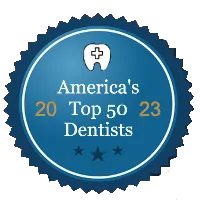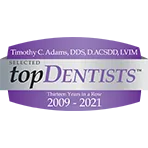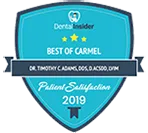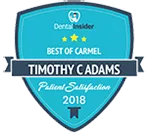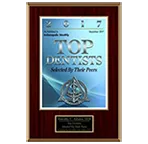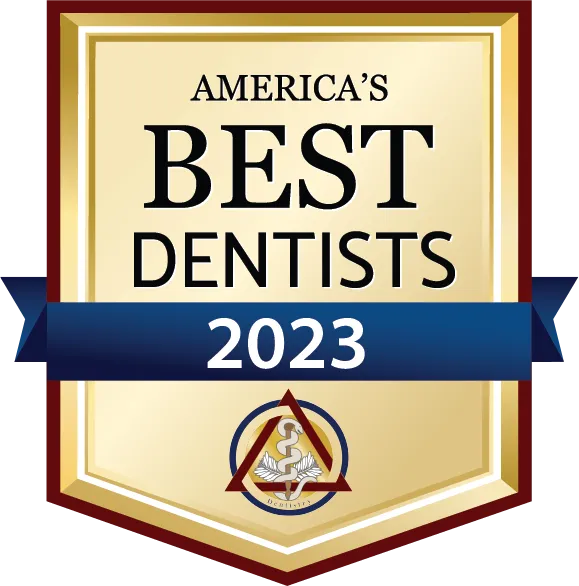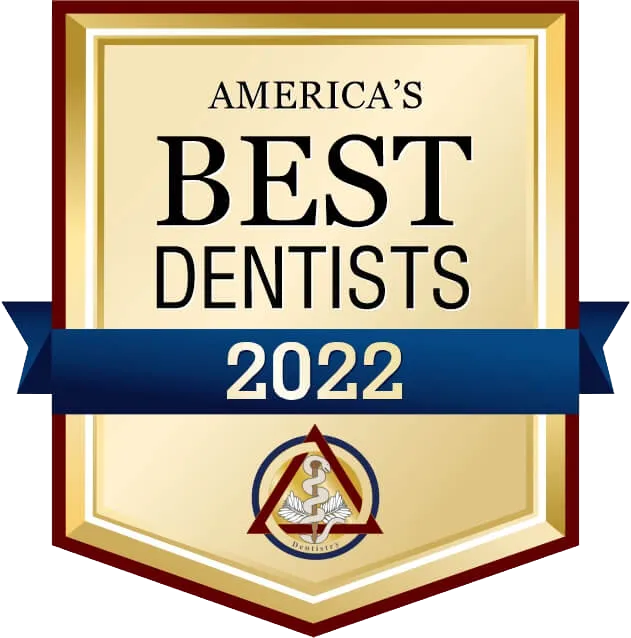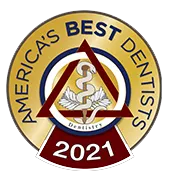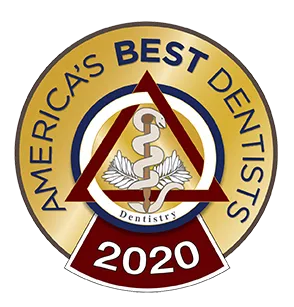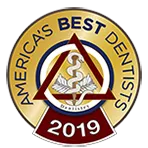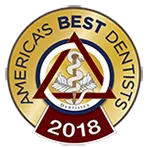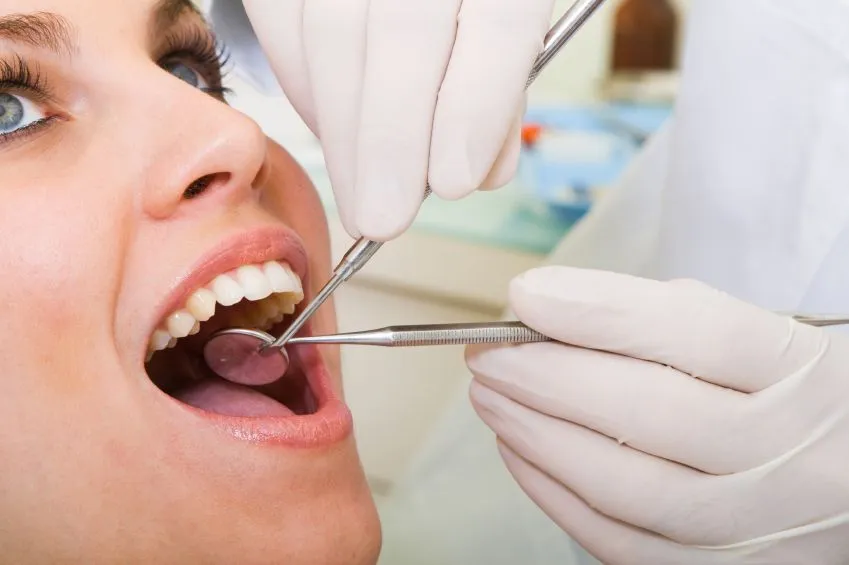
Maintaining a healthy smile requires attention to a healthy lifestyle, diet, good dental hygiene and regular dental cleanings and exams. Maintaining a healthy smile not only makes you look good but it is good for your health. Routine teeth cleanings can prevent diseases in the rest of the body like heart disease, dementia and complications of diabetes. Routine cleanings also prevent tooth loss which can lead to expensive dental treatments. Neglected oral health can lead to serious health consequences which is why it is so important to schedule and keep your routine cleaning appointments.
Professional teeth cleaning by a certified dental hygienist aims to remove plaque, tartar and stains that have accumulated on the teeth. Even with routine brushing and flossing of your teeth and gums, tarter can develop. The professional cleaning of teeth is a crucial part of good oral hygiene and is needed periodically to maintain the health of your teeth and gums. Most dentists recommend having your teeth professionally cleaned every 6-12 months to reduce the likelihood of periodontal disease progressing. In between routine cleanings, good oral hygiene at home is vital to prevent tarter build-up and gum disease. Plaque is the sticky, soft film that contains millions of bacteria. This bacteria found in plaque is what causes gum disease and tooth decay if not removed by daily brushing and flossing, as well as routine trips to the dentist. Tartar, or dental calculus, is a hard calcified deposit that forms on the teeth and can contribute to their decay. Dentists and hygienists use specialized instruments to gently remove these deposits without causing harm to the teeth. All dental instruments are put through a stringent cleaning, disinfecting, and sterilizing procedure to ensure safety and quality control. A dental mirror and magnifying loops will also be used to help the dentist inspect hard-to-see areas in the mouth. Dental mirrors feature elongated handles generally connected to round mirrors. A dental mirror can help the dentist observe the teeth and gums for signs of irritation, swelling, decay, tartar, or bleeding. Dental loops magnify areas of inspection over 2 to 5 times.
WHY IS TARTAR SO TERRIBLE?
The reason it needs to be removed is because your body will see tartar as an invader, much like it attacks any infection or flu. Your body's immune system will double down and fight off the infection in the ongoing war going on in your mouth on a daily basis This is why it is important to practice good oral hygiene and schedule routine teeth cleanings in order to keep the battle at bay. Gum disease is an example of when your immune system is responding to tartar buildup with bleeding and inflamed gums. Unfortunately, there can be a cost in this war against bacteria which can be bone and tissue loss. Chronic activation of the immune system can potentially lead to diseases in the rest of the body. This is why preventing gum disease reduces the risk of dementia, heart disease and stroke. If gum disease progresses too far, the damage can be irreversible so prevention is the best way to keep beautiful teeth for a lifetime......and routine teeth cleanings are a critical piece of prevention.
KNOW YOUR POCKET READING
At every routine cleaning you'll get a pocket reading which is so important for your health. The gum and tooth meet above the area where the tooth is attached. This creates a small pocket around the tooth. Ligaments that hold the tooth and gum together are located at the bottom of the pocket. When the body feels it's under attack, it produces an enzyme that eats those ligaments away, making the pocket deeper. The top flap of the pocket can also grow larger due to inflammation and this is not good for your health. This is why it is important to take a pocket reading which measures the size of your pockets. Deeper pockets are indicators of disease so with proper oral hygiene and home and though routine teeth cleanings, you can prevent your gums from being inflamed. It is important to know your pocket reading, just like its good to know your blood pressure or weight. It's always good to know where you are and when and if things change.
THREE DIFFERENT KINDS OF ROUTINE CLEANINGS
No Gum Disease : This is the best outcome and one to maintain for every routine cleaning. When the dentist flosses your gums and puts a probe inside your pockets to measure them, there should be no bleeding. When you use a WaterPik or Hydrofloss along with regular brushing and and flossing, you should be able to stay in this category of routine cleaning. Remember, having no gum disease for a lifetime will reduce your risk of heart disease and dementia. Reduced inflammation in your body will make you better at fighting infection and even making it easier to lose weight!
Type I: Gingivitis: About 80% of the people in the United States have gingivitis which unfortunately is all too common. If you have gingivitis , your gums bleed when you floss them or when the pockets are probed during measurement. There may also be some redness along the edge of the gum where it meets the tooth. This means your gums are not healthy because they are reacting to an infection and they are diseased. It is important to change your daily hygiene because it means you may need to increase your brushing and flossing. If you don't change your toothbrush at least once a month, you may be aggravating your gum disease. Closys is an excellent mouthwash because it reduces the sulphur components that bacteria feeds upon. It is better for the oral cavity because it is alcohol free.
Type II: Early Periodontitis: At this stage, gingivitis has progressed to something more serious which means you may have deeper pockets. Your gums are bleeding when flossed or probed. It's possible you may even have some ligament damage to the plate where your gums attach to your teeth.
Once larger pieces of tarter are dislodged, the dentist will make the switch to finer hand-held instruments. Often referred to as curettes or scalers, these tools are designed to eliminate smaller deposits on the teeth and smooth the tooth surfaces. Each tooth must be scaled individually to ensure that all tarter is removed. Once the surfaces of the teeth are smooth, the dentist will polish the teeth. Using a slow-speed handpiece containing a soft rubber cup, the polishing device spins at the tip to smooth teeth. Prophylaxis paste, a gritty toothpaste-like solution, is put into the rubber cup. The cup containing the solution spins on the teeth to create a shiny, smooth surface. In some instances, your dentist may also apply fluoride as the final step in cleaning. Available in a variety of flavors, such as strawberry, chocolate, mint, and cherry, fluoride is placed in flexible foam trays and placed over the teeth. After 30 seconds of the fluoride treatment, the patient is asked to spit the remaining solution into a saliva ejector. Fluoride is used to strengthen teeth and protect them against dental plaque and tarter.
The majority of dental patients find routine teeth cleaning to be painless. The cooling mist of water, mild vibrations, and the pressure felt during “scraping” does not generally caused discomfort. It’s important to let your dentist know if the cleaning is beginning to cause pain, so that they can recommend alterative options to make your teeth cleaning more enjoyable. Most dental cleanings last between 30 minutes to an hour on average, and are performed in a lying position in a comfortable dental chair. After a professional teeth cleaning, you may notice that your teeth feel fresher and look brighter. Teeth cleaning procedures are designed for more than just appearances. Professional teeth cleaning treatments are the primary means of preventing and treating periodontal disease and maintaining tooth health.

